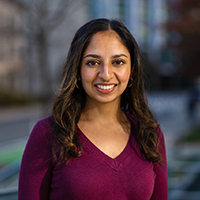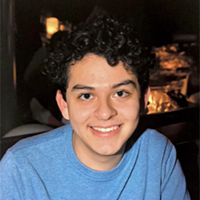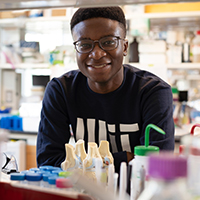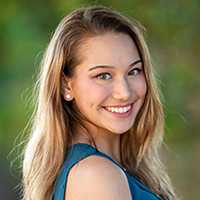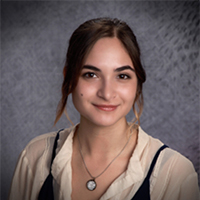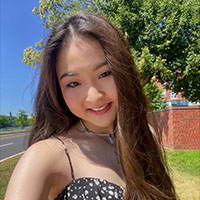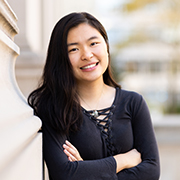Senior Spotlight | Class of 2023
Meet 44 of the many graduating seniors who focused deeply on both Liberal Arts and STEM fields at MIT. In their own words, these students reflect on the value of their multi-dimensional, dual-competence MIT education — and their plans for the future!
Click on a student's name for a full profile.
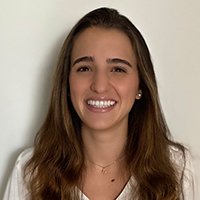 |
 |
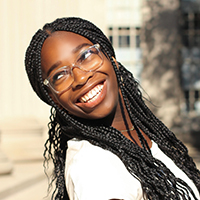 |
|
Maria Ascanio Alino |
Hillary Diane Andales |
Tolu Asade |
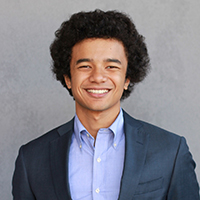 |
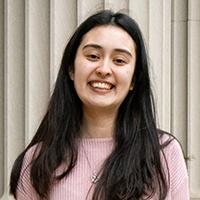 |
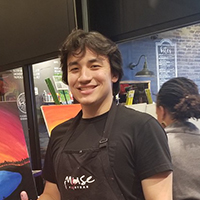 |
|
Major: Urban Science and Planning with Computer Science |
Majors: Physics + Music |
Major: Computer Science and Engineering + Literature |
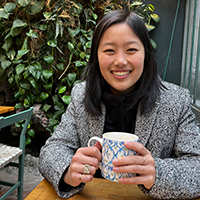 |
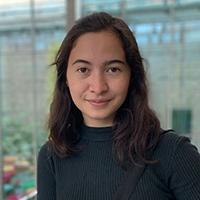 |
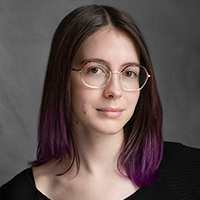 |
|
Major: Computer Science and Engineering |
Major: Mathematical Economics + Art & Design |
Hannah Gazdus |
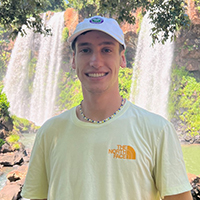 |
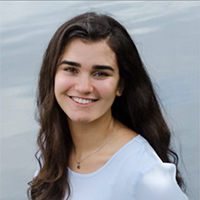 |
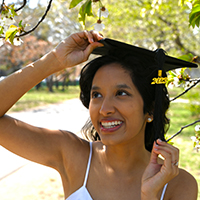 |
|
Majors: Mathematics + Literature |
Major: Materials Science and Engineering |
Shelby Kaywalin Laitipaya |
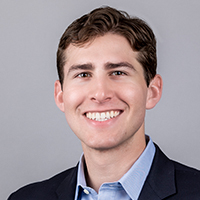 |
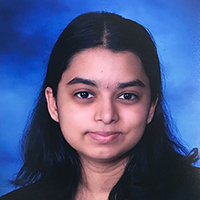 |
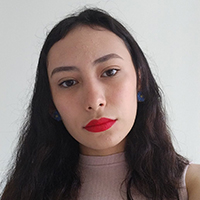 |
|
Matthew Leonard |
Major: Biology |
Majors: Electrical Engineering and Computer Science + Political Science |
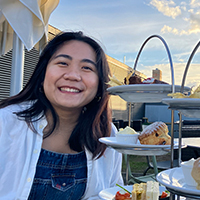 |
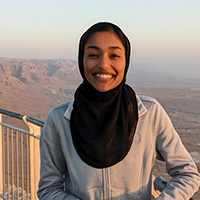 |
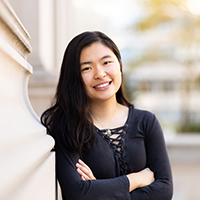 |
|
Major: Computer Science and Engineering |
Shaida Nishat |
Major: Computer Science and Molecular Biology |
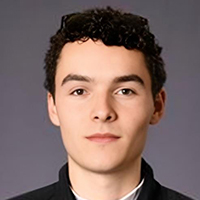 |
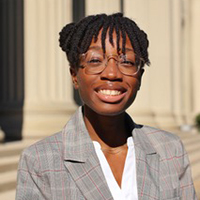 |
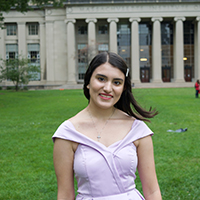 |
|
Javier A. Vilá Ortiz
|
Kristen Palmer |
Christina Patterson
|
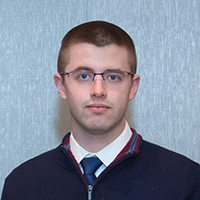 |
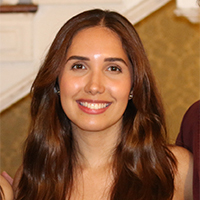 |
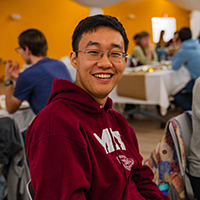 |
|
Major: Aerospace Engineering
|
Majors: Computer Science and Engineering |
Steven Qu |
 |
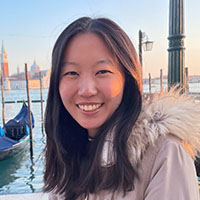 |
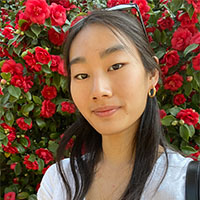 |
|
Major: Computer Science and Engineering + Linguistics |
Angela Zhang |
Diane Zhang |
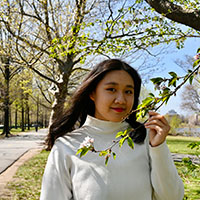 |
 |
|
|
Tianyuan "Margaret" Zheng |
Miriam Zuo |
|
Full Profiles | Senior Spotlight 2023
"Dual competence is a good model for undergraduates at MIT: master two fundamental ways of thinking about the world, one technical and one humanistic or social."
— Professor David Mindell, Historian, Engineer, Co-founder and CEO of Humatics Corporation
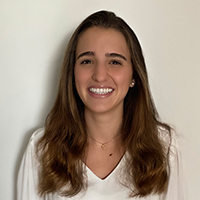 |
|
Maria Asciano Alino
Major: Computer Science and Engineering
Minor: French
Hometown: Madrid, Spain
Plans for the future: Working at Palantir in New York City
What have you most enjoyed about studying French?
I have loved getting to know the professors in the French department as well as getting to learn more about French culture through reading contemporary literature, watching movies and tv shows, and having class discussions. Throughout my French classes at MIT, I have become much more confident in my French conversation skills, and I have gotten the opportunity to meet people who are just as passionate about French as me. There are so many memorable experiences that I will remember from my French studies, whether it is my two weeks learning about food and culture in Paris with the January Scholars in France program or my weekend in New York City to participate in the US Goncourt Prize selection along with other universities, MIT has given me the opportunity to learn French in and outside of the classroom.
How does the knowledge from this field, or your interest in them, combine with your other studies at MIT?
Studying French has opened a great number of doors in my future. Although my computer science knowledge itself is not necessarily advanced through my French knowledge, I have been pushed to communicate my ideas on various topics in my French conversations, and I know this has made me much better at communicating effectively in my technical field. Additionally, by understanding and communicating in French, I will be able to go to francophone countries and use my technical knowledge there which is a goal for my near future.
An MIT education includes study in the scientific, technical, social science, arts, and humanities fields. How do you think that wide range of knowledge and perspectives will be valuable to you — for your career success and for your enjoyment of life?
Having the chance to learn about scientific, technical, social science, arts, and humanities fields at MIT has made me a truly multifaceted student, and I believe it will help me in the future to communicate effectively about my technical field. Because of these various fields that we get to experience at MIT, I now understand psychological science and understand how the human brain works, I can be creative and express myself thanks to my acting courses, and I understand more about the French culture and how to communicate effectively about my technical field with francophone speakers.
What are your plans for the future?
My plans are to start working at Palantir in New York City starting in September.
 |
|
Hillary Diane Andales
Major: Physics
Minor: Astronomy + Science, Technology, and Society
Hometown: Abuyog, Leyte, Philippines
Plans for the future: PhD in Astronomy & Astrophysics at the University of Chicago
What have you most enjoyed about studying STS?
Up until high school, I only learned about Science the Method and Science the Body of Knowledge. Back then, I wanted to study science because it felt like an escape from the complicated world. I imagined that science was only concerned about the truth and nothing else, that it was insulated from earthly squabbles. But alas, I was wrong. In my STS classes, I learned that science was in fact deeply embroiled in earthly squabbles; I learned about Science the Social Institution.
Though it is hard to pick my favorite STS class, my most impactful class was probably STS.021 Science Activism. I read about the scientist-activists who called for nuclear disarmament, climate action, gender equality, and social responsibility. Even more importantly, I learned about how power seeps into science's search for truth—a way of thinking that has radically shifted my understanding of the world. Taking it during the Fall of 2020 amidst a global pandemic, racial reckoning, and political turmoil in the Philippines made the class especially life-changing for me. Later STS classes further cemented my interest in the field.
How does the knowledge from this field, or your interest in it, combine with your other major or minor studies at MIT?
Physics is typically presented as a decontextualized field of inquiry, ripped from its historical context and taught only as a set of principles and equations. This way of teaching grossly erases the relationship between physics and society. Studying STS has allowed me to fill in the erasures. It has helped me learn about the consequences of the Manhattan Project, the wartime origins of computing, the effects of discrimination on science, and many more. My knowledge in STS has given me a more complete understanding of the world and the universe, one that physics alone cannot provide.
An MIT education includes study in the scientific, technical, social science, arts, and humanities fields. How do you think that wide range of knowledge and perspectives will be valuable to you — for your career success and for your enjoyment of life?
As a physics major and astronomy minor, I use science to ask questions about the universe. But now, I also ask questions about science itself. How are its methods used? How does it wield power or how is it complicit in systems of power? For whom are its products created? Which communities does the scientific process affect? Learning to ask these questions has been pivotal to my intellectual growth at MIT. This way of thinking, which I learned from my STS classes, has been important in helping me become a scientist who is not only knowledgeable but also critical and compassionate. Besides giving me an important skill, my STS classes have also ignited a deep interest in history, philosophy, and sociology. I enjoy reading books that reveal unexpected connections between science and society.
What are your plans for the future?
After graduating from MIT, I plan to take a gap year working in science communication. I will start the year as an Astronomy Communication Intern at NSF's NOIRLab in Tucson, Arizona. I will then return to the Philippines and work towards engaging the public in science. My practice will of course draw on my STS experience. I will make sure to present science in its rich web of context. I might create video content, host a show, or work at a science agency—we shall see!
After the gap year, I will start my PhD in Astronomy & Astrophysics at the University of Chicago. There, I will work on uncovering the history of our home galaxy, the Milky Way.
 |
|
Tolu Asade
Majors: Mechanical Engineering & Theater Arts
Hometown: Houston, TX
Plans for the future: Working at Gillete P&G as product design engineer; local theater in Boston
What have you most enjoyed about studying theater arts?
I've enjoyed the ability to continue pursuing Theater Arts as more than a hobby. For the first time, while studying here, due to my professors and the classes offered, I could really see myself continuing with Theatre beyond college. My favorite experience has to be acting in Non-Player Character with Brandon Green. I feel like I grew as an actor and it’s the moment I decided to major in theater.
How does the knowledge from this field, or your interest in it, combine with your other major or minor studies at MIT?
My other major is mechanical engineering and surprisingly I’ve found that the two compliment each other well. Mechanical Engineering does require some creativity in designs and theater is nothing but creative expression. There is also a need to be able to communicate ideas clearly in engineering and I’ve gained confidence in communication/performance from theater.
An MIT education includes study in the scientific, technical, social science, arts, and humanities fields. How do you think that wide range of knowledge and perspectives will be valuable to you — for your career success and for your enjoyment of life?
I think it’s important to be able to build a foundation from various perspectives. Like I mentioned above, I believe engineering and theatre (or arts in general) actually compliment each other quite well. Being able to approach technical things from a creative point of view or vice versa can help me think outside the box and create unique solutions to complex issues. It’s also nice to have a create outlet to escape to when I get lost in the numbers and equations of engineering.
What are your plans for the future?
I remain in the Boston area working at Gillette P&G as a product design engineer. I also hope to keep doing theater and join the local theater scene in Boston.
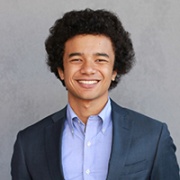 |
|
Gabriel Barrett
Major: Urban Science and Planning with Computer Science
Minor: Spanish
Hometown: Fremont, CA
Plans for the future: MIT pursuing a Master in City Planning
What have you most enjoyed about studying Spanish?
What I enjoyed most was studying the culture of Spanish speaking countries through different mediums. It is a good break from the technical classes I take at MIT to be able to do work that critically examines creative media. On of my favorite classes that I took was 21G.710 Graphic Stories: Spanish and Latin American Comics where we read and created comic books in order to study broader historical and cultural trends in Spain and Latin America.
How does the knowledge from this field, or your interest in it, combine with your other major or minor studies at MIT?
I study Urban Planning as my major which is all about people. In the US, Spanish is of course spoken by millions of people living in cities. Being able to communicate with people in their native language is breaks down barriers that would otherwise exists and helps researchers learn about the problems they face in their communities. Knowing Spanish also opens up the ability to study cities in other countries more easily as I could directly talk to people that live their or read about these different places from sources that are not always written/translate into English.
An MIT education includes study in the scientific, technical, social science, arts, and humanities fields. How do you think that wide range of knowledge and perspectives will be valuable to you — for your career success and for your enjoyment of life?
I think it is important that people come out of college as well rounded individuals. It opens people up to new ways of thinking that they otherwise wouldn’t have been exposed to being stuck in the “bubble” of their major. Urban Planning is a field that looks for creatively solutions to solve problems. Studying Spanish and Latin American culture in school has definitely shown me knew perspectives and insights into the ways other people live which I think is invaluable in my field of study. And of course on a personal level, being able to speak Spanish (or any other language) allows you to communicate with so many more people and I have really enjoyed being able to talk to folks both here and abroad.
What are your plans for the future?
Next year I will be continuing for a fifth year at MIT pursuing a Master in City Planning.
 |
|
Lisa Blomberg
Major: Physics + Music
Hometown: Wilsonville, OR
Plans for the future: PhD in Physics, studying astrophysics at CalTech
What have you most enjoyed about studying music?
Ever since I started playing piano at the age of three, music has always been a big part of my life and who I am. Although I had taken private lessons growing up, I had never had the chance to formally study a wide range of music until I got to MIT. I have enjoyed having the opportunity to take classes in a wide range of subjects (ranging from world music, to classical music, to popular music) in the past four years! Outside of my music courses, I have also loved being a part of the MIT Wind Ensemble as a percussionist!
How does the knowledge from this field, or your interest in it, combine with your other major or minor studies at MIT?
For me, music and physics has never been something that I combine, but rather something that reflects two different aspects of my life. Physics research has been the center of my academic interest over the years, while music has been a more of a personal interest. Attending my music classes and going to rehearsal has always been an escape from the never-ending physics psets, and I find that music is something that brings out the artistic side of myself.
An MIT education includes study in the scientific, technical, social science, arts, and humanities fields. How do you think that wide range of knowledge and perspectives will be valuable to you — for your career success and for your enjoyment of life?
Music has a way of connecting people, even those who come from different backgrounds or speak another language, and I think that's something that I have really come to realize in the past 4 years. Especially in my recent trip to Manus, Brazil with MITWE, I had the opportunity to experience another culture through music and really changed my perspective on the world. I think my studies of humanities at MIT has changed how I see the world and has allowed me to grow into a more open minded individual.
What are your plans for the future?
Next fall, I will be starting my PhD in Physics, studying astrophysics at CalTech!
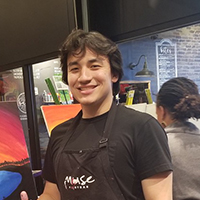 |
|
Trevor Carter
Majors: Literature + Computer Science
Hometown: Glen Ellyn, IL
Plans for the future: Working at a startup out of a Course 3 (DMSE) laboratory doing embedded engineering and ML work
What have you most enjoyed about studying literature?
Literature exposed me to writers, genres, and culture I never would have seen otherwise. Through the combination of Film and Literature classes I took dive deeps into fields I was already fascinated in, and was led by instructors who put me onto classes that pushed my comfort zone and exposed me to new ways of thinking.
How does the knowledge from this field, or your interest in it, combine with your other major or minor studies at MIT?
Literature and Computer Science offer two acutely different sets of tools to approach problems which can be applied to almost any situation. The technical understanding of data, trends, and algorithms complements the critical and interpretational methods which frame a problem in reference to a broader perspective or contemplate the outcome of my work. Reading, writing, and interpreting are actions we require every day, and as an engineer, technical fluency is required too.
An MIT education includes study in the scientific, technical, social science, arts, and humanities fields. How do you think that wide range of knowledge and perspectives will be valuable to you — for your career success and for your enjoyment of life?
Computer Science has given me technical tools which I will utilize in my work, research, and eventually into graduate school. Similarly, Literature has broadened my skillset in problem-solving and communication and given me a long list of authors and directors whose works I need to consume.
What are your plans for the future?
Currently working at a startup out of a Course 3 (DMSE) laboratory doing embedded engineering and ML work. Writing fiction and doing Digital Humanities research in my free time. Eventually going to graduate school.
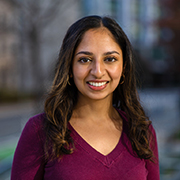 |
|
Anjali Chadha
Majors: Biological Engineering + Literature
Hometown: Louisville, KY
Plans for the future: Starting as a Laboratory Research Scientist at the Francis Crick Institute in London in August
What have you most enjoyed about studying literature?
Literature is all about context. No subject, character, or theme is ever black or white; instead, we have to take every idea in a fictional work as complex and nuanced. Literature is cross-sectional; we can study history, society, psychology, and philosophy through any given literary work. One incredibly valuable lesson I have learned from Literature is that judgment is often not as productive as active understanding and empathy. Leopold Bloom in Ulysses exemplifies this notion (thank you, Prof. Buzard), and many of my professors have encouraged me over the years to refrain from assigning moral value to characters’ actions, but rather to understand where they emerge from, and always push to recognize positive qualities as well.
How does the knowledge from this field, or your interest in it, combine with your other major or minor studies at MIT?
My other major is Biological Engineering, and communication of scientific innovation is paramount in today’s world. Being a Literature student has helped me read, write, and talk about my work in an accessible and productive manner. I feel that Literature is fundamentally the study of people and what we think and feel; therefore, I now think more about how my scientific work impacts real people in a tangible way.
An MIT education includes study in the scientific, technical, social science, arts, and humanities fields. How do you think that wide range of knowledge and perspectives will be valuable to you — for your career success and for your enjoyment of life?
Flipping between technical and humanities courses every day for the past few years at MIT has made my experience especially enjoyable because in exercising my brain in such different ways, I have learned to bring a discretizing approach to my study of literature, and a human-centric approach to my study of science and engineering. I think being a reader and receiving training at MIT will allow me to relate to many different types of people over my lifetime and be curious about a vast assortment of topics outside of my professional work. While bioengineering may be my day job, I believe exposure to SHASS topics will help me build community and contribute more broadly to society.
What are your plans for the future?
I will be starting as a Laboratory Research Scientist at the Francis Crick Institute in London in August. I will pursue a PhD in Bioengineering after 2 years working here, and plan to join a creative writing program while in London. I am really thrilled to be living and working in a city with so much history and culture, and to expand my network abroad. I am so thankful that MIT has afforded me two opportunities to travel to London for both of my majors — I couldn’t recommend Literary London highly enough! It is a wonderfully immersive program taught by an excellent professor (Diana Henderson).
 |
|
Abraham Corea Diaz
Majors: Electrical Engineering and Computer Science
Minor: French
Hometown: San Bruno, CA
Plans for the future: Returning to Bay Area to work as a software engineer
What have you most enjoyed about studying French?
My favorite aspect of studying French has been learning to understand other cultures through their history, media, and art. I have found that getting to read and watch things made by French-speaking individuals has been the best way to gain an insight into what their lives are like, more than just reading about it in English could convey.
A highlight of my French experience at MIT was the opportunity to travel to Paris with other students through the French department. The best part was finally being able to observe and experience in real life aspects of French culture that I had been learning about in classes for all these years!
How does the knowledge from this field, or your interest in it, combine with your other major or minor studies at MIT?
While French may not apply directly to my study of electrical engineering and computer science (except maybe being able to pronounce the names of some French researchers), practicing communication in general is always useful! It is also quite refreshing to take a break from technical lecture-focused classes and get the chance to talk with other students for a few hours each week.
An MIT education includes study in the scientific, technical, social science, arts, and humanities fields. How do you think that wide range of knowledge and perspectives will be valuable to you — for your career success and for your enjoyment of life?
Getting the opportunity to take classes in a wide range of fields outside my major has exposed me to new areas of personal interest that I probably would never otherwise have taken the time to learn about. Additionally, learning to communicate well is essential no matter what you choose to do in life, and studying French has given me the ability to communicate with a whole new group of people! And of course there are many aspects of French culture, from food to books to music, that will continue to contribute to my enjoyment of life after I graduate.
What are your plans for the future?
I will be returning home to the Bay Area to work as a software engineer. Even though I may not use it in my daily work, I hope to continue interacting with the French language and culture for the rest of my life!
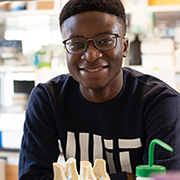 |
|
Victor Damptey
Major: Biological Engineering
Minor: Spanish
Hometown: Chaska, MN
Plans for the future: Completing Fulbright Fellowship in Barcelona, Spain, and then continuing studies in medical school
What have you most enjoyed about studying Spanish?
I've greatly enjoyed learning from different cultural and academic perspectives as a Spanish student. One impactful class for me was 21G.715 (Topics In Medicine In The Hispanic World) because the lessons in public health in Hispanic nations directly funneled into my budding interest in pursuing a medical career. I remember a discussion that we had regarding how to reduce obesity rates in Latino communities in the US. In the class, we considered different ways of managing obesity without infringing upon their culture through methods such as education and moderation. A straightforward solution would have been to remove these foods entirely, but 21G.715 showed me that the quickest solution is not always the best one.
How does the knowledge from this field, or your interest in it, combine with your other major or minor studies at MIT?
Studying biological engineering has been an incredible experience, but minoring in Spanish has ensured that I do not lose sight of the social impact that my major can have on the people around me.
An MIT education includes study in the scientific, technical, social science, arts, and humanities fields. How do you think that wide range of knowledge and perspectives will be valuable to you — for your career success and for your enjoyment of life?
Learning from these various fields will ensure that I will be able to tackle interdisciplinary problems throughout my career. In addition, becoming well rounded in these areas has helped me to connect with other individuals on diverse interests and topics.
What are your plans for the future?
I will complete a Fulbright Fellowship in Barcelona, Spain, and then continue my studies in medical school.
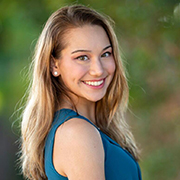 |
|
Pamela Duke
Major: Finance
Minors: Economics + Environment & Sustainability
Hometown: San Jose, CA
Plans for the future: Working at Evercore as an investment banking analyst
What have you most enjoyed about studying economics?
I like how Economics classes use real-world examples and case studies to make the concepts more applicable. I particularly enjoyed Behavioral Economics - it has helped me understand the limits of traditional economic models and recognize the importance of considering people's irrationalities and biases when analyzing their decisions. For example, we examined various behavioral biases such as loss aversion, overconfidence, and social preferences and how they can affect economic outcomes.
How does the knowledge from this field, or your interest in it, combine with your other major or minor studies at MIT?
As a Finance major with minors in Economics and Environment & Sustainability, my Economics coursework has connected to my other studies. Economics has helped me understand the connections between markets and policies, which is relevant for analyzing competition between businesses, evaluating financial statements, and understanding company decisions. Economics has also overlapped with my interest in energy and sustainability. I took Energy Economics, which gave me a greater understanding of topics such as electricity markets and the challenges of decarbonizing the economy. I have also gained a deeper understanding of the role that economic incentives can play in shaping environmental policies.
An MIT education includes study in the scientific, technical, social science, arts, and humanities fields. How do you think that wide range of knowledge and perspectives will be valuable to you — for your career success and for your enjoyment of life?
Because of the diverse range of knowledge and perspectives that I gained at MIT, I can have engaging conversations with my peers and coworkers about diverse topics, which has allowed me to relate to a wider range of people. Furthermore, I can make connections between things I learn in my career, hear in the news, and discuss in conversations. These skills have helped me approach problems in a more holistic manner and find innovative solutions that take into account multiple perspectives.
What are your plans for the future?
After I graduate, I will be moving to New York to work at Evercore as an investment banking analyst.
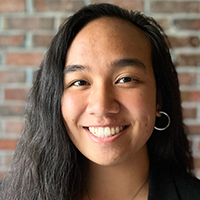 |
|
Kanoe Evile
Major: Biological Engineering
Minors: Linguistics
Hometown: Haleiwa, HI
Plans for the future: Attending Columbia University Vagelos College of Physicians And Surgeons to pursue an MD-PhD
What have you most enjoyed about studying linguistics?
Studying linguistics at MIT has allowed me to explore my passion for language with a level of depth and rigor that has enabled me to develop a true appreciation for the fascinating phenomena in our everyday lives that we rarely pay mind to.
How does the knowledge from this field, or your interest in it, combine with your other major or minor studies at MIT?
While Linguistics and Bioengineering don’t have the most obvious relationship, the skills that I gained from my linguistics training have benefited me greatly. Through the foundational linguistics classes, I found myself rapidly developing the ability to find patterns, identify data gaps, and formulate and test hypotheses – all of which greatly benefited my biological work.
An MIT education includes study in the scientific, technical, social science, arts, and humanities fields. How do you think that wide range of knowledge and perspectives will be valuable to you — for your career success and for your enjoyment of life?
I am extremely grateful to have attended an institution that values and provides such a wide range of academic enrichment opportunities. I believe that all of my experiences have synergized to develop my skills as a scientist and engineer and while I still have so much more to learn, I am confident in my ability to keep learning from all the different perspectives and channels that knowledge will continue to come in through in the future.
What are your plans for the future?
I will be attending Columbia University Vagelos College of Physicians And Surgeons to pursue an MD-PhD! After this training, my eventual goal is to move home to Hawaii and work to improve the state of Pacific health both in my home and in the broader Pacific region.
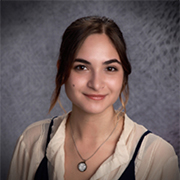 |
|
Crista Falk
Major: Computation and Cognition
Minor: Music
Plans for the future: PhD in Cognitive Science at Tufts University
What have you most enjoyed about studying music?
During my time in undergrad, I loved exploring the intersection of music and computation. Classes such as Electronic Music Composition I (21M.361) and Computational Music Theory and Analysis (21M.383) opened my eyes to the rich connections between the theory and appreciation of art when considered through the lens of technology.
How does the knowledge from this field, or your interest in it, combine with your other major or minor studies at MIT?
As a computation and cognition major, I often gravitate toward questions of perceptual experience. Music psychology has long been an interest of mine, and I would be excited to someday apply my involvement with music to my love for studying the brain and mind.
An MIT education includes study in the scientific, technical, social science, arts, and humanities fields. How do you think that wide range of knowledge and perspectives will be valuable to you — for your career success and for your enjoyment of life?
I believe that the humanities pervade all aspects of my life, including the work I do within my field. My SHASS education at MIT has enabled me to gain invaluable perspective on how the science I do relates directly to our society and the people who live in it. As a musician, I have found that learning more about the nature of music itself, whether historically or theoretically, has helped strengthen my passion for music in my everyday life as well.
What are your plans for the future?
After graduation, I will be pursuing a Ph.D. in Cognitive Science at Tufts University where my research will focus on multisensory perception.
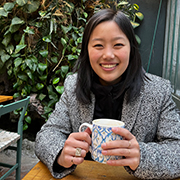 |
|
Trinity Gao
Major: Computer Science and Engineering
Minor: French + Finance
Hometown: Sunnyvale, CA
Plans for the future: Master's of Engineering (MEng) in computer science at MIT
What have you most enjoyed about studying French?
What I’ve enjoyed most about studying French is the study of not only another language, but another culture! At such a STEM focused school, I find myself looking forward to exercising my brain in other ways and practicing languages.
How does the knowledge from this field, or your interest in it, combine with your other major or minor studies at MIT?
My major is computer science, and my other minor is finance. Learning about the French language and culture has been really cool especially when I learn about the tech and finance fields in other countries. I feel that my French classes have really equipped me with a perspective on how culture impacts all industries.
An MIT education includes study in the scientific, technical, social science, arts, and humanities fields. How do you think that wide range of knowledge and perspectives will be valuable to you — for your career success and for your enjoyment of life?
I think being a HASS minor keeps me grounded in our society, in how the impacts of science and tech field touch everyone.
What are your plans for the future?
I plan on pursuing a masters of engineering (MEng) in computer science here at MIT!
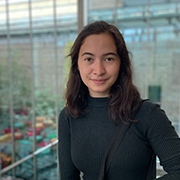 |
|
Audrey Gatta
Major: Mathematical Economics + Art & Design
Minor: Spanish
Hometown: New York City
Plans for the future: Participating in MISTI Chile, before starting to work full-time in consulting in Seattle
What have you most enjoyed about studying economics and Spanish?
My favorite economics class at MIT, 14.41 (Public Finance and Public Policy), exposed me to the high discrepancies in public education funding in the US, inspiring me to embark on MIT Spokes this summer to teach STEAM workshops to students in rural and low-income communities across the country.
Additionally, minoring in Spanish has led to a host of new experiences, including studying and teaching abroad. Spending a semester in Madrid allowed me to further my study of the language all while being immersed in Spanish culture and society. I also had the opportunity to spend a month in Andorra through Global Teaching Labs, where I was fascinated by the fluidity of languages there, as my host family jumped between Catalan, Spanish, and French all within one conversation.
How does the knowledge from this field, or your interest in it, combine with your other major or minor studies at MIT?
As double major in Art & Design (Course 4B) and Mathematical Economics (14-2), and a minor in Spanish, my passions and interests converge and diverge in unique ways. While I studied abroad in Spain, I saw how my language studies also allowed me to grow as an artist and designer beyond the classroom as I discovered the art and culture that Spain had to offer. I marveled over the varied architectural styles that reflect Spain’s history of Muslim, Jewish, and Christian coexistence in the country, such as the Mosque-Cathedral of Córdoba. I was absolutely in awe when I visited Madrid’s ‘Golden Triangle’ of art museums: Museo Del Prado, Museo Reina Sofia, and Museo Thyssen-Bornemisza, especially as I felt the gravity of the anti-war message of Picasso’s Guernica.
An MIT education includes study in the scientific, technical, social science, arts, and humanities fields. How do you think that wide range of knowledge and perspectives will be valuable to you — for your career success and for your enjoyment of life?
MIT’s multidisciplinary education has provided me with a diverse skill set and unique perspectives that I will continue to carry as I forge my path post-graduation. I hope to apply these various perspectives throughout my career and life experiences, bringing together my technical background from mathematical economics, my creative passions from design, and my desire for mutual understanding from studying a foreign language.
What are your plans for the future?
Immediately after graduation, I will be biking across the country, from Washington DC to San Francisco, and teaching STEAM workshops along the way through MIT Spokes. In the fall, I plan on participating in MISTI Chile, before starting to work full-time in consulting in Seattle.
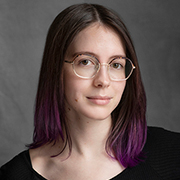 |
Hannah Gazdus
Majors: Mechanical Engineering + Creative Writing
Hometown: Shrewsbury, NJ
Plans for the future: Pursuing master's in mechanical engineering at MIT
What have you most enjoyed about studying creative writing?
My favorite part of studying creative writing has been learning from my peers! It's been so much fun to discuss and analyze media with my classmates in Critical Worldbuilding, and I always love reading my friends' stories. I'm always so inspired and motivated to write after reading the pieces of the other writers in my writing group and classes.
How does the knowledge from this field, or your interest in it, combine with your other major or minor studies at MIT?
My other passions and studies definitely influence my writing. All my characters usually create in one way or another, and I distribute my interests among them to end up with characters who play silly songs on the piano, characters who make paint, and characters who love to build things, among many others. In particular, my MechE studies have been really influential on the fantasy series I'm writing; I've been developing the ways 3D printing and construction have been intrinsic to my world due to the elemental magic system.
An MIT education includes study in the scientific, technical, social science, arts, and humanities fields. How do you think that wide range of knowledge and perspectives will be valuable to you — for your career success and for your enjoyment of life?
As a writer, engineer, and artist, it's been so much fun experiencing how interdisciplinary MIT studies are! My experience the past four years has been so rewarding, as I've been able to explore everything that brings me joy and meet so many people with different perspectives and backgrounds. I've learned so much from just living at MIT and being a part of its community.
What are your plans for the future?
I'm very fortunate to have the opportunity to continue my studies at MIT as I pursue my master's in mechanical engineering over the next couple years. My master's experience will help me decide whether I'd like to pursue a PhD. In the long term, my overall goal is to be a full-time engineer who writes and publishes fantasy novels.
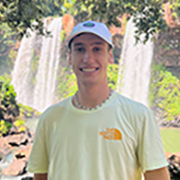 |
|
Richter Jordaan
Majors: Mathematics + Literature
Hometown: Denver, CO
Plans for the future: PhD in math at Georgia Tech
What have you most enjoyed about studying literature?
My favorite experience at MIT was going to São Paulo, Brazil over IAP to take a literature class analyzing race, place, and modernity in Brazil and the United States. Not only was the course material extremely interesting, but the opportunity to visit key sites in person, have dialogue with local scholars and activists, and learn alongside an incredible group of students and instructors was a complete privilege.
How does the knowledge from this field, or your interest in it, combine with your other major or minor studies at MIT?
Some of my literature coursework has looked at the history of science and also the way that science and technology reconfigure our human experience – and even our understanding of what it means to be human. These topics have supplemented my perspectives and experiences as a STEM major.
An MIT education includes study in the scientific, technical, social science, arts, and humanities fields. How do you think that wide range of knowledge and perspectives will be valuable to you — for your career success and for your enjoyment of life?
In addition to literature, I’ve also taken courses in philosophy, political science, media studies, and women’s and gender studies. The frameworks and insights across these fields have been applicable not only in academic environments but also in everyday living, and have also illustrated to me the importance of interdisciplinary approaches to solving problems.
What are your plans for the future?
I will be starting a math PhD program at Georgia Tech.
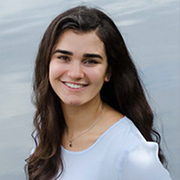 |
|
Arina Khotimsky
Major: Materials Science and Engineering
Minors: French + Energy Studies
Hometown: Westborough, MA
Plans for the future: Master's in International Relations for Energy at Sciences Po in Paris
What have you most enjoyed about studying French?
I enjoyed taking French Cinema with Prof. Nicholas. Though I often relax by watching movies, I had never taken any film studies courses that teach critical thinking and analysis of the media we consume. Through this class, not only did I practice my French speaking and writing skills, I applied them in a context that was incredibly relevant to my life. Now, I feel like I can appreciate films at a deeper level and discuss them both in English and in French. I loved having the dedicated time to also watch a few select French classic films.
How does the knowledge from this field, or your interest in it, combine with your other major or minor studies at MIT?
I am deeply interested in clean energy and sustainability, which is what I hope to do with my career. However, the challenge of climate change and reaching sustainable levels of carbon emissions is a global one. Speaking another language will allow me to connect with others around the world also passionate about this challenge and work on solutions together.
An MIT education includes study in the scientific, technical, social science, arts, and humanities fields. How do you think that wide range of knowledge and perspectives will be valuable to you — for your career success and for your enjoyment of life?
Having a wide range of knowledge and perspectives is valuable for observing the problems in our world. Such problems nearly always require interdisciplinary solutions; I feel more confident in my skills to connect with people, ask the right questions, and find meaningful solutions thanks to my study of STEM and humanities.
What are your plans for the future?
I will be pursuing a master's at Sciences Po in Paris in International Relations for Energy!
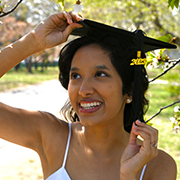 |
|
Shelby Kaywalin Laitipaya
Major: Brain & Cognitive Sciences + Biology
Minor: Music
Hometown Trabuco Canyon, CA
Plans for the future: Pursuing an OD (Doctorate of Optometry) at the New England College of Optometry and maybe a joint degree with a Master’s in Vision Science
What have you most enjoyed about studying music?
I really loved studying Music at MIT. I truly enjoyed the vast diversity of classes that the Music program here at MIT has to offer. One especially valuable experience for me was learning about ethnomusicology as well as the ways in which music can transcend language. I believe that I gained a lot of insight into this in one of my favorite classes where I performed as a part of Rambax MIT, our Senegalese Drum Ensemble.
How does the knowledge from this field, or your interest in it, combine with your other major or minor studies at MIT?
My interest in Music combines with my other studies at MIT as I enjoy focusing on how music can bring people together and also be healing.
An MIT education includes study in the scientific, technical, social science, arts, and humanities fields. How do you think that wide range of knowledge and perspectives will be valuable to you — for your career success and for your enjoyment of life?
I believe that a wide range of knowledge is essential for career success as it allows for great flexibility, adaptability, and understanding. Additionally, music brings so much fulfillment and enjoyment to my life, so I will forever be grateful to have been able to pursue it to a greater extent during my time at MIT.
What are your plans for the future?
I will be pursuing an OD (Doctorate of Optometry) at the New England College of Optometry, and may add a joint degree with a Master’s in Vision Science too!
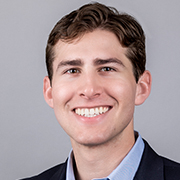 |
|
Matthew Leonard
Major: Computer Science, Economics, and Data Science
Hometown: San Antonio, TX
Plans for the future: Joining Warburg Pincus as a private equity analyst
What have you most enjoyed about studying economics?
Through studying economics I learned how much I love studying the field of game theory. I took 14.19 my junior fall and then 14.12 my senior fall, and thought both classes were absolutely fascinating. Both professors, Parag Pathak and Ian Ball, were excellent teachers and their enthusiasm about how game theory and mechanism design can shape the way we think about our decisions and about incentives in the world had a massive impact on my academic career here.
How does the knowledge from this field, or your interest in it, combine with your other major or minor studies at MIT?
Game theory is at the intersection of economics, mathematics, and computer science. I was a 6-14 major, so it was hard to take a class that didn’t touch on game theory directly or indirectly. Having the ability to study a field I deeply cared about from so many different angles during my time here is something for which I will always be grateful.
An MIT education includes study in the scientific, technical, social science, arts, and humanities fields. How do you think that wide range of knowledge and perspectives will be valuable to you — for your career success and for your enjoyment of life?
I plan to be an investor for the rest of my life, and investing is known as one of the last truly interdisciplinary fields. I chose this field in part because I loved the wide range of topics I was able to study at MIT. It is my belief that happiness follows appreciation, and appreciation follows knowledge; to the expert, any topic is fascinating. By teaching me how to think, rather than what to think, MIT has given me a wonderful launchpad to embark on what I hope will be a life full of curiosity and learning.
What are your plans for the future?
I'll be joining Warburg Pincus as a private equity analyst, and hopefully using my knowledge of game theory, incentives, and decision-making for the next 80 years!
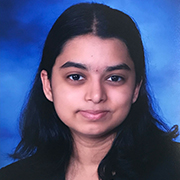 |
|
Sahithi Madireddy
Major: Biology
Minor: Women's and Gender Studies
Hometown: San Jose, CA
Plans for the future: Attending medical school in the fall
What have you most enjoyed about studying women's and gender studies?
I've enjoyed the interdisciplinary perspectives in the Women's and Gender Studies Program at MIT, ranging from literature, history, psychology, philosophy and economics. It has given me a theoretical base to understand gender as an organizing principle of society from so many different angles, which I can apply to contemporary issues. One of my favorite experiences in the WGS minor was taking Feminist Thought, where we dove into feminist philosophical and political texts. I loved how the class surveyed a wide range of (sometimes discordant) positions on gender and treated this diversity as a good thing, because it meant we had more tools to analyze our current world.
How does the knowledge from this field, or your interest in it, combine with your other major or minor studies at MIT?
As a biology major pursuing a medical career, my WGS minor has taught me to analyze the role medicine plays in society, and the role society plays in health. Classes like Black Feminist Health Science Studies and HIV/AIDS in American Culture allowed me to explore structural barriers to health as a function of identity. For instance, in Black Feminist Health Science Studies, I produced a podcast with my classmates on connections between contemporary psychiatric and carceral systems. This was an incredible opportunity for me to analyze a neglected issue and offer thoughts on how medical treatment could be more aligned with principles of care.
An MIT education includes study in the scientific, technical, social science, arts, and humanities fields. How do you think that wide range of knowledge and perspectives will be valuable to you — for your career success and for your enjoyment of life?
Having a background in both the sciences and humanities will be important for me in understanding the human significance of my work. I will be able to analyze both the technical details of any project and articulate its impact. Additionally, I will be able to draw wisdom from and find beauty in more places. I will become a scientifically-trained professional who is also trained in formulating ideas, communicating them, and connecting with people with all sorts of interests.
What are your plans for the future?
I plan to attend medical school in the fall, where I will strive to become a physician who promotes health equity for patients of all experiences and identities.
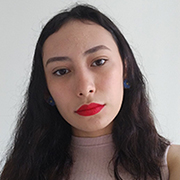 |
|
Samantha Maldonado
Majors: Electrical Engineering and Computer Science + Political Science
Hometown: Arlington, TX
Plans for the future: Fellowship position with the ACLU of Texas; Yale Law School for J.D.
What have you most enjoyed about studying political science?
I enjoyed the practicality of the material I learned through my Political Science classes. It was a very empowering feeling being able to understand complex systems that affect our everyday lives such as the healthcare system, welfare policies, and the Congressional policymaking system. My favorite class would probably have to be US Social Policy. I remember going home that semester and being able to help explain to my mom how Social Security works: the age she could retire at, the benefits she would get, and how benefits were determined.
How does the knowledge from this field, or your interest in it, combine with your other major or minor studies at MIT?
Along with Political Science, I also majored in EECS (Electrical Engineering and Computer Science). For me, this combination greatly compliments one another. I was able to apply my EECS skills in my Political Science work through the programming I did in an undergraduate research position aiding Berinsky's work on analyzing the spread of misinformation. I was also able to apply my EECS skills when I designed and implemented my own survey experiment that worked to mitigate the effects of racial bias in public opinion of welfare policies.
An MIT education includes study in the scientific, technical, social science, arts, and humanities fields. How do you think that wide range of knowledge and perspectives will be valuable to you — for your career success and for your enjoyment of life?
The wide range of knowledge and perspectives embedded in an MIT education is valuable to me as it has broadened my career goals and allowed me to find where my true passion lies. I entered MIT thinking I wanted to go into engineering and positively contribute to the world through technology. After the onset of the COVID pandemic, I quickly realized I was much more passionate and interested in making change through policy work. Because MIT requires us to take HASS classes, I was able to explore this area before committing to a change in my career trajectory.
What are your plans for the future?
In the upcoming year, I have accepted a fellowship position with the ACLU of Texas through the Weil Legal Innovators program. After this year-long fellowship, I will be attending Yale Law School for my J.D. degree. After law school, I plan on going back to my home state of Texas and aiding in expanding equitable policy in the state.
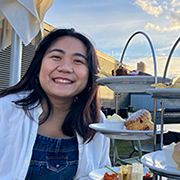 |
|
Nghi Nguyen
Major: Computer Science and Engineering
Minor: French
Hometown: Champaign, IL
Plans for the future: Software engineer in New York City
What have you most enjoyed about studying French?
French classes at MIT were always a pleasure to attend and participate in. The caring and passionate staff were always encouraging and made every class fun and interactive, which made me always have a chance to practice improving my French without fear of being wrong. By having the emphasis on always speaking, I gained a lot of confidence speaking in real life and it made me realize how practical and priceless knowing another language is.
How does the knowledge from this field, or your interest in it, combine with your other major or minor studies at MIT?
Learning French has expanded my academic, personal, and professional interests exponentially. From learning French, aside from gaining the skill to converse with other communities about my interests, I have been able to see the applications of my field in a new lens that is more people and globally oriented—focusing on how technology impacts different societies. At MIT, it’s dangerously easy to focus on advancing the next big technology, but without taking into account who would be affected by the advancement—who would benefit and who would be at a disadvantage. Learning French has allowed me to interact more with all sorts of people who live a different life from me. As a result I expand my interests to be more people oriented and aim to pursue my interest through these new lenses.
An MIT education includes study in the scientific, technical, social science, arts, and humanities fields. How do you think that wide range of knowledge and perspectives will be valuable to you —for your career success and for your enjoyment of life?
Learning a language is valuable as it is a skill that will be used on a daily basis and impacts how one can further communicate with the world. I appreciate being able to communicate with more people and learn more about people who I will encounter in my career and life.
What are your plans for the future?
I'll be working full time as a software engineer in New York in the immediate future and aim to return to school pursuing my research interests in human computer interactions, or A.I.
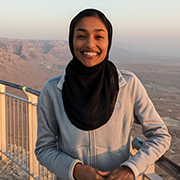 |
|
Shaida Nishat
Major: Biology
Minor: Society, Technology, and Society + Health Policy
Hometown: Hamtramck, MI
Plans for the future: Graduate school; pursuing a career in public health
What have you most enjoyed about studying STS?
Studying in STS meant sitting in my biology classes and thinking beyond the material the professors were lecturing on. It was learning how to see beyond the academics of a science and consider the factors that allowed that science to be what it is today. I found this to be the case when I was taking a biology class on cancer and realized that it was heavily complemented by an STS class I had taken on the history of cancer as an emerging disease. Both classes intersected in the material often, and the STS class provided context that explained why cancer research became prominent and progressed at the rapid pace that it did. This was what I enjoyed the most about having an STS background—being able to tie in and know the social influences of what I was studying in my major. Having a holistic perspective on the subjects I was learning made my educational experience so much richer and more rewarding, and I have the STS program to thank for that.
How does the knowledge from this field, or your interest in it, combine with your other major or minor studies at MIT?
STS served as the link between my biology major and my health policy minor. I always saw it as the provider of information on how my scientific interests came to be, but also as an abundance of examples of how areas such as policy could significantly alter it. STS showed me how human factors can and have shaped the biological and health fields and inspired me to pursue a path that involves both the science and human aspects of health.
An MIT education includes study in the scientific, technical, social science, arts, and humanities fields. How do you think that wide range of knowledge and perspectives will be valuable to you — for your career success and for your enjoyment of life?
As someone with an interest in public health—which involves aspects from a number of these fields—, having an understanding of these areas will be extremely beneficial to my career. I know that the knowledge I’ve gained from studying in these fields will regularly come into use in my future, and the appreciation I now have for it has made me more open to pursuing opportunities in these areas.
What are your plans for the future?
I plan to attend graduate school in the coming years and pursue a career in public health.
|
|
Sherry Nyeo
Major: Computer Science and Molecular Biology
Minors: Management + German
Hometown: Tainan, Taiwan and Broomfield, CO
Plans for the future: Pursuing a PhD with the Tri-Institutional program in Computational Biology and Medicine program in NYC
What have you most enjoyed about studying German?
Whenever someone asks what my favorite classes at MIT were, I'd say German! I started learning German in college with no prior experience in it, and it's one of the best decisions I've made. Other than the fact that knowing German opened up a new world of literature, history, culture, and politics on a continent I wasn't familiar with, I love finding happy surprises whenever a familiar term or phrase has German roots. A few examples I included in an illustrated storybook I created during German 3 were that Einstein was “a stone,” and a lot of organic chemistry terms are rooted in German (e.g., “entgegen” and “zusammen” for E- and Z- isoforms). It's like finding Easter eggs in your everyday life!
Another thing I've grown to appreciate during my language-learning journey was how much more unafraid I've become to make mistakes, be corrected, and not feel embarrassed – and even feel comfortable – about not being “perfect” at a skill. I came in with the mindset that I don't want to learn a language because I can never speak it like a native speaker (or, at least, have perfect grammar and no “accent”). Actually learning a language from scratch has been such a humbling experience, and I think it's changed my attitude towards learning in general for the better. This past IAP, I did GTL Germany, and I was really excited to find that I could actually communicate with native speakers – it's not perfect, and I say “Äh, wie sagt man [some English term] auf Deutsch?” every other sentence, but I'm learning all the time!
How does the knowledge from this field, or your interest in it, combine with your other major or minor studies at MIT?
My major and minors are all pretty disconnected from each other, and I think it goes to show how wonderfully flexible MIT is at letting students pursue whatever they're excited about learning. Doing GTL Germany this past IAP let me teach biology at a local high school in Stuttgart. The classes were in English, but I got to speak to my host families and the high school's teachers in German and practice a lot that way!
An MIT education includes study in the scientific, technical, social science, arts, and humanities fields. How do you think that wide range of knowledge and perspectives will be valuable to you — for your career success and for your enjoyment of life?
I think the shifted mindset towards being okay with not being the “expert” in a topic (such as being a “native speaker” for a language, or being the most junior member of my UROP) has been one of the most valuable things I've learned at MIT. Being comfortable with, even excited about, constantly learning and adapting what you think you know has helped me stay open-minded about where I'm going. I hope to gain as many experiences as possible in this one wild and precious life, and I feel like I've only barely scratched the surface with the wide range of fields I've peeked into at MIT. This flexibility helped me build confidence in knowing how to approach challenges, despite not necessarily knowing outright what the solutions are. There's still so much more to do, learn, experience, and discover out there, and I'm excited to look ahead.
What are your plans for the future?
After graduation, I'll be pursuing a PhD with the Tri-Institutional program in Computational Biology and Medicine program in NYC! In the long run, I hope to use my technical background to develop accessible and affordable therapeutics for patients who need them.
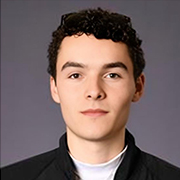 |
|
Javier A. Vilá Ortiz
Major: Biology
Minor: Economics
Hometown: San Juan, Puerto Rico
Plans for the future: Master’s in biomedical engineering from MIT before applying to medical school
What have you most enjoyed about studying economics?
I think I like economics because it's practical–it helps me refine the sort of "utilitarian" framework I see reflected in most of the problem-solving I do daily and in larger systems across different disciplines. I’ll distinctly remember 14.73 as a class that helped reinforce this sort of thinking in order to help study the challenge of world poverty.
How does the knowledge from this field, or your interest in it, combine with your other major or minor studies at MIT?
I hope to be an advocate for and help advance the quality of life for the people of Puerto Rico. I see the current socio-economic and political climate on the island as an opportunity for me to give back through a career in medicine and public service that combines clinical work and research with efforts to reform public health policy.
An MIT education includes study in the scientific, technical, social science, arts, and humanities fields. How do you think that wide range of knowledge and perspectives will be valuable to you — for your career success and for your enjoyment of life?
An MIT education that nurtures multiple perspectives and outlooks is important because societal problems require interdisciplinary thinking to drive change. I was attracted to these fields of study because of the practicality of applying engineering and economic principles to advance healthcare on my island.
What are your plans for the future?
I'm planning to complete MIT’s fifth-year master’s program in biomedical engineering before applying to medical school.
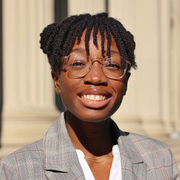 |
|
Kristen Palmer
Major: Electrical Engineering and Computer Science
Minor: Chinese
Hometown: Brooklyn, NY
Plans for the future: Traveling this summer, before starting as software engineer in New York
What have you most enjoyed about studying Chinese?
The thing I've enjoyed the most is being able to connect with people on a deeper level by learning a new language. During my internship last summer, the majority of my team (including my managers) were native Chinese speakers. When I first met them, they were very happily surprised to hear that I spoke Mandarin, and this made it much easier to fit in culturally. When we would have team lunches or team outings, I felt very comfortable chiming into the conversations, whereas I may have not been if I didn't know the language. One funny memory I have is when my manager bragged to her cousin and my teammates about some classical Chinese ballads I knew how to sing! I'd like to thank Chen Laoshi for introducing me to such good music in Chinese class.
How does the knowledge from this field, or your interest in it, combine with your other major or minor studies at MIT?
One of the reasons I continued studying Chinese during my time here is because I am interested in tech. It is no secret that China is making a lot of really interesting technological developments, so I expect that knowing Chinese will be a major asset for me in the future. If I ever want to do business abroad, which I have considered, I will come in with a background of the culture and a good grasp of the language, which will be very helpful.
An MIT education includes study in the scientific, technical, social science, arts, and humanities fields. How do you think that wide range of knowledge and perspectives will be valuable to you — for your career success and for your enjoyment of life?
I think this will be valuable because in most jobs, you need to have multiple types of knowledge in order to be successful. For a software engineer, it is important to be creative and know how to express your thoughts clearly. And for an artist, knowing how to use technology to get your art out to the world is going to be a major benefit. I think that having a wide range of knowledge also makes things more interesting and helps you get a more holistic view of the world.
What are your plans for the future?
This summer, I plan to travel and hopefully visit a few countries where I can practice my Chinese. In the fall, I will return to New York, where I will begin a full-time software engineering job.
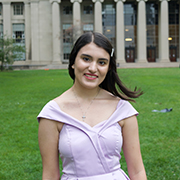 |
|
Christina Patterson
Majors: Mechanical Engineering + Music
Hometown: Pittsburgh, PA
Plans for the future: Mechanical engineer for Hatch Ltd in engineering design consulting
What have you most enjoyed about studying music?
Throughout my time at MIT, studying music has challenged me to share my constructive criticism on musical works. This skill has translated to my ability to work with teams and give valid critiques as well as receive feedback in a more effective way. In 21M.301, Harmony and Counterpoint I, I was able to revise and edit a composition with feedback to achieve a greater end performance.
How does the knowledge from this field, or your interest in it, combine with your other major or minor studies at MIT?
Studying music has enriched my experience in studying mechanical engineering. The soft skills as well as analysis skills I have learned from the music major have made class projects like 2.009, Product Design Processes, a much more formative experience.
An MIT education includes study in the scientific, technical, social science, arts, and humanities fields. How do you think that wide range of knowledge and perspectives will be valuable to you — for your career success and for your enjoyment of life?
From my experience in a fair number of UROPs to every music presentation that I have given in all the major curriculum, my time at MIT has been invaluable. The swath of experiences in various fields will prepare me to work on interdisciplinary teams in industry; also, it’s helped me to develop greater empathy for members of teams with professional backgrounds different from mine.
What are your plans for the future?
In September, I will start a position as a mechanical engineer for Hatch Ltd in engineering design consulting. In the future, I’m interested in exploring a masters in mechanical engineering and potentially combining that degree with a masters of business administration.
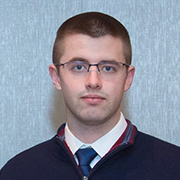 |
|
John Pendergrast
Major: Aerospace Engineering
Minor: Political Science
Hometown: Mendham, NJ
Plans for the future: Development Engineer or Intelligence Officer for Air Force or Space Force
What have you most enjoyed about studying political science?
What I have enjoyed most is being able to learn about the world. Through the political science department I’ve had the opportunity to study more about Western Europe, Russia, Japan, China, even the non-geographic domains of space and cyberspace. The breadth of information and experiences that I have learned from has been by far the most rewarding and enjoyable part of minoring in Course 17.
How does the knowledge from this field, or your interest in it, combine with your other major or minor studies at MIT?
Space has become an increasingly politicized and militarized domain within the last decade as demonstrated by the War in Ukraine through the use of private imaging and communications space assets to provide wartime C4ISR capabilities. Careful understanding of the political & military consequences of space systems will be necessary for aerospace industry leaders going forward into this new space age.
An MIT education includes study in the scientific, technical, social science, arts, and humanities fields. How do you think that wide range of knowledge and perspectives will be valuable to you — for your career success and for your enjoyment of life?
As much as my curriculum in Aerospace Engineering has prepared me for the technical aspects of engineering, my experiences taking classes in Political Science have prepared me in the art of communicating my thoughts clearly in both written communications and presentations, listening to and considering different perspectives, and overall teaching me more about the world we live in. All of these experiences I consider to be just as valuable as my technical engineering courses.
What are your plans for the future?
My plan is to commission into the Air Force or Space Force as either a Developmental Engineer or an Intelligence Officer. While I haven’t received my assignment yet, I look forward to being able to apply what I have learned in my time at MIT within both the Aerospace and Political Science Departments in whichever career I am assigned.
Top
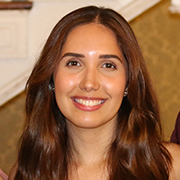 |
|
Isabella Pedraza Pineros
Major: Computer Science and Engineering
Minor: Finance + French
Hometown: Miami, FL
Plans for the future: MIT in the Master's of Engineering Program with the EECS department
What have you most enjoyed about studying French?
I have loved exploring contemporary French literature in my classes. I’ve learned so much about the French perspective and niche cultural references – something I hadn’t been exposed to before. I also love French music, which makes sense since French Pop Music is one of my favorite classes!
How does the knowledge from this field, or your interest in it, combine with your other major or minor studies at MIT?
I profoundly believe computer languages and foreign languages are not that different, and I feel my love for languages transcends into both my major and minor. In addition, I’ve definitely made connections by speaking French to business owners and even found a potential internship this way!
An MIT education includes study in the scientific, technical, social science, arts, and humanities fields. How do you think that wide range of knowledge and perspectives will be valuable to you — for your career success and for your enjoyment of life?
I feel like this wide range allows me to be a more well-rounded person, and find ways to connect effectively with others from different backgrounds, cultures, and fields of expertise beyond technical conversations. I also feel that I’ve gained a deeper understanding of various aspects of society, culture, and technology.
What are your plans for the future?
I'll be continuing my studies at MIT in the Masters of Engineering Program with the EECS department!
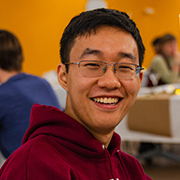 |
|
Steven Qu
Major: Math + Computer Science
Minor: Music
Hometown: Rockville, MD
Plans for the future: Working in NYC at Hudson River Trading
What have you most enjoyed about studying music?
Music is (at the very least) a three-way blend between composing, performing, and listening.
I've been fortunate to learn about theory, but also to go beyond and create new forms of music through code in Interactive Music Systems. Before IMS, it had never occurred to me to think about general music creation and instrumentation as one (as obvious as that may sound). Shoutouts to Prof. Egozy and my final project partners, Tiffany and Jenny.
The performance opportunities given through Emerson and CMS have helped me grow tremendously as a musician and a person. I've found a community to cherish and joy in learning new music and playing together. Here, I'm immensely grateful for my teacher Lynn Chang and all the musical mentors and friends I've had over the years.
Finally, I also won't forget my time in Prof. Marks' Animated Film Music, especially the part covering 50s animation that put modernist music in context and actually made it make sense to me!
How does the knowledge from this field, or your interest in it, combine with your other major or minor studies at MIT?
There are many natural connections between music and math, and of course much potential for music in technology (and vice versa). I hope my studies in these fields continue to give insight into their wonderful intersections.
An MIT education includes study in the scientific, technical, social science, arts, and humanities fields. How do you think that wide range of knowledge and perspectives will be valuable to you — for your career success and for your enjoyment of life?
I think my MIT education has given me a deep sense of perspective - of what is important, what is reasonable, what is beautiful. The world is a complicated place and there is always more to learn... and hopefully this perspective will remain with me for the rest of my life and career.
What are your plans for the future?
I will be working in NYC at Hudson River Trading.
 |
|
Sanjay Raman
Major: Physics + Math
Minor: Music
Plans for the future: PhD in Physics at Harvard University
What have you most enjoyed about studying music?
My favorite thing about my music minor was the opportunity to compose my own music. I have always loved creating music, and the music department at MIT has provided wonderful opportunities for me to study music theory and learn how to make my own pieces. Creating a new piece of music from start to finish is a very special experience, and I greatly enjoyed developing this skill alongside my major studies (physics and math). My favorite composition class was 21M.310, where we learned about the techniques used by 20th-century composers. In this class, I studied my favorite pieces by Ravel, and I'm using a lot of the techniques I learned used in an orchestral piece that I'm working on currently!
How does the knowledge from this field, or your interest in it, combine with your other major or minor studies at MIT?
I am majoring in physics and math, and my area of research is in string theory. Although my music studies don't relate directly to my academic research, they provide a great way for me to develop my creativity. Creativity is very useful in mathematical research, and I find that composing music is a great way to exercise that part of my brain! In a way, theoretical physics and math are like an art, and doing something like music provides a nice point of comparison!
An MIT education includes study in the scientific, technical, social science, arts, and humanities fields. How do you think that wide range of knowledge and perspectives will be valuable to you — for your career success and for your enjoyment of life?
Exposure to many different fields of study has been an amazing part of my MIT experience, and I feel that this kind of diversity of experience is very valuable regardless of which career I end up pursuing. Very often, the most important breakthroughs in science arise when people with nonstandard perspectives bring their unique background and approach to a problem. In addition, doing art and music just makes my life more enjoyable -- I love the experience of sitting down at the piano and working on a composition, and I am immensely grateful to have had the opportunity to develop this side of myself at MIT.
What are your plans for the future?
In the immediate future, I am going half a mile up the street to Harvard to pursue a PhD in Physics! After this, I intend to continue in academia and physics in particular. At some point, I hope to go to music school and study composition further, whether as part of a degree program or not.
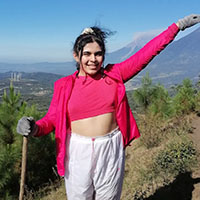 |
|
Emille Alessandre Santos
Major: Mathematics + Computation & Cognition
Minor: Linguistics + Music
Hometown: Ciudad de Guatemala, Guatemala
Plans for the future: Working for one year with Flatiron in NYC; then pursuing a PhD in Mathematics at University of Washington
What have you most enjoyed about studying linguistics and music?
I had barely heard of anything related to linguistics before coming to MIT. I was really interested in learning languages and naively thought linguistics would be all about this. Soon, I learned that the two things are not the same despite having some connections. Instead of talking about the peculiarities of a single language, Linguistics was a beautiful attempt to create a theory of everything for Human Language. When these connections were the most apparent I felt the most joy. I vividly remember the moment I understood Optimality theory while taking Phonology (24.901) with Donca Steriade; I was amazed by how the weird exceptions to pronunciation that I learned while taking Russian 1 had an underlying structure that explained them, and this underlying structure was pervasive to a multitude of languages.
In terms of Music, I just really enjoyed taking 21M.383 Computational Music Theory with Prof. Cuthbert, and being part of the Senegalese Drum Ensemble. 21M.383 was one of the most wonderful experiences I had at MIT. Music had never felt so connected to Brain Sciences and Mathematics. I was amazed by the group properties of musical chords and the studies on musical perception. The class made me think deeply about the connections between all the subjects that I love, and it really made me question whether I wanted a career in Music theory. The Senegalese Drum Ensemble is such a wonderful performance group. Despite having some musical training, I had never performed for that many people. It was beautiful to pick up a new instrument and become progressively more comfortable with the pieces we performed. I enjoyed a lot also the people in the group that included not only different class years, but also alums that stayed in the areas and members of the broader MIT Community.
How does the knowledge from this field, or your interest in it, combine with your other major or minor studies at MIT?
I think the clearest connection I see is between linguistics and Brain and Cognitive Science. All generalizations done in Language made me reflect on possible mechanisms in the brain that would give rise to this behavior. Given that we understand so little about the Brain, I learned to see language as a tool to understand what is going on inside our heads. I also loved all probabilistic descriptions of Linguistic phenomena like phonetic perception or word choice.
I think Music has the closest connection to Math because of the mathematical properties of tones and chords. I have also been able to see some similarities between the way humans experience music and language. In fact, the only way music is transmitted in the sambar tradition of drums is through oral tradition. I started to think of improvisation as another form of speech where you are so comfortable with the language you can compose great works on the spot.
An MIT education includes study in the scientific, technical, social science, arts, and humanities fields. How do you think that wide range of knowledge and perspectives will be valuable to you — for your career success and for your enjoyment of life?
I really enjoy having a strong background in linguistics when talking to other people interested in psycholinguistics because I am able to bring some of my theoretical understanding. I also think when reflecting on possible models for the Brain, I always keep in mind whether they would match my intuition of how language works.
In terms of life enjoyment, I personally loved performing musically, and I feel more empowered and motivated to seek performance opportunities in the future. I truly feel encouraged to do Music for life. I also really enjoy knowing about different musical genres in American Popular Music and Brazilian Popular Music. I am able to understand the historical importance and relevance of many musical movements. I love seeing the power of Music in society.
What are your plans for the future?
I will be working in New York for one year at the cancer research company Flatiron and then pursue a PhD in Mathematics at University of Washington.
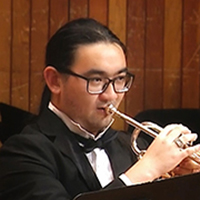 |
|
Tristan Shin
Major: Music + Mathematics
Minor: Computer Science
Hometown: San Diego, CA
Plans for the future: Continuing to study math, finding ways to use math for positive impact
What have you most enjoyed about studying music?
I really enjoyed getting to meet and work with many people, from classmates to professors, who are also interested in music. Playing in the MIT Symphony Orchestra opened up many friendships stemming from our shared passion and enjoyable moments in the group. Being able to engage deeply with music through composition, analysis, and performance was greatly beneficial to my musicianship and understanding of the world of music. Having an amazing community of peers and faculty here makes the experience even more enjoyable.
How does the knowledge from this field, or your interest in it, combine with your other major or minor studies at MIT?
I believe that the thought processes to tackle difficult problems in different fields can sometimes be similar -- for example, more experience approaching concepts in different ways can be fruitful in both music and math. In terms of the content of my studies, I mostly view music and math as separate parts of my life, both enjoyable and intellectually stimulating.
An MIT education includes study in the scientific, technical, social science, arts, and humanities fields. How do you think that wide range of knowledge and perspectives will be valuable to you — for your career success and for your enjoyment of life?
All of these perspectives help me appreciate more about everything going on around the world, from the night sky to a human brain. I am glad that I had the opportunity to take classes in different fields and learn enough to be amazed by what's out there.
What are your plans for the future?
I plan on continuing to study math and hope to find ways to use math for positive impact.
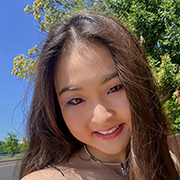 |
|
Rila Shishido
Major: Physics + Music
Minor: Astronomy
Hometown: Tokyo, Japan
Plans for the future: Working as a space systems researcher after graduating, hoping to pursue a PhD
What have you most enjoyed about studying music?
I have always enjoyed various subjects and learning cool new things. I grew up doing music, whether that would be recitals, band, jazz band, or even just listening to music for fun. Since music played such a large role in my life, I naturally wanted to continue pursuing it at MIT as well. One of the things I enjoyed doing was learning about different cultures through the lens of music. I am also a part of the MIT Wind Ensemble (MITWE) and one of the highlights of this year was being able to go to Manaus, Brazil and performing there. Having taken the class, Music of Brazil, two years ago; it was surreal that I was able to actually go to the location of the place I was learning about. Not only did I enjoy performing Brazilian music, I had the opportunity to connect with the community and learn so much.
How does the knowledge from this field, or your interest in it, combine with your other major or minor studies at MIT?
I haven’t gone in consciously trying to make a connection between physics and music. However, when you go to the fundamentals of music, it really is music. Although my focus in physics was never in music or acoustics, I have had the opportunity last summer to be a part of an UROP on modeling violin acoustics.
An MIT education includes study in the scientific, technical, social science, arts, and humanities fields. How do you think that wide range of knowledge and perspectives will be valuable to you — for your career success and for your enjoyment of life?
Playing music tables me to focus on something that is different from school work, a sort of productive break. Beyond that, there is something magnificent about creating music together with other people. Every instrument plays a different role and brings a unique contribution to the music as a whole. Being in an ensemble is highly collaborative and having the shared interest of music really helps me to connect with others. Music is sort of a language, sometimes even beyond language and I really value that aspect of it.
What are your plans for the future?
I will be working as a space systems researcher after graduating and hope to pursue a PhD later.
 |
|
Aquila Simmons
Major: Theater Arts + Mechanical Engineering
Hometown: Columbus, OH
Plans for the future: Graduate school at MIT for Mechanical Engineering
What have you most enjoyed about studying theater arts?
What moves me about studying theater is understanding the complexities of design and communication. Producing live theater is about storytelling and I am fascinated by trying to understand how design elements shape how the audience engages with and understands a narrative. One of my favorite classes was Lighting Design which demonstrated how much information the lighting of a space conveys without an audience actively recognizing how much they are being told about time of day, location, and mood. Wrestling with how to convey a story, the feel and understanding of it, has been incredibly important to building my communication skills across many different areas of my life.
How does the knowledge from this field, or your interest in it, combine with your other major or minor studies at MIT?
My passion at MIT has been learning to design within constraints. I have found that my theater education has heightened my understanding of approaching problems from an artistic perspective, thinking about how to communicate with the user. I also study Mechanical Engineering which approaches design from a more practical, mathematical standpoint. Combining these different views allows me to consider how to do something and what its effect will be.
An MIT education includes study in the scientific, technical, social science, arts, and humanities fields. How do you think that wide range of knowledge and perspectives will be valuable to you — for your career success and for your enjoyment of life?
I hve taken an incredibly wide range of classes during my time at MIT. In addition to theater classes, engineering classes, required math and physics classes, I have also had the opportunity to take PE classes for parkour and sailing, art classes in the MIT forge, and using the MIT printing press, classes about painting, politics, and people. I have found great joy in studying all of these areas and feel that I have gained a more well-rounded view of the world and my own life through the diversity of my studies.
What are your plans for the future?
Next year I will be attending graduate school at MIT for Mechanical Engineering. I will be working in Professor Henry's Lab on methane pyrolysis for hydrogen production. I am looking forward to deepening my understanding of thermodynamic to help mitigate the effects of climate change. I will apply my holistic view of engaging with problems to help take on these challenges.
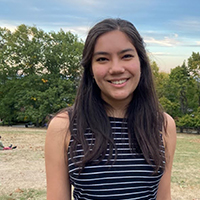 |
|
Sophia Sonnert
Major: Mechanical Engineering
Minor: German
Plans for the future: Research in Switzerland on a Fulbright fellowship; applying to grad school for Mechanical Engineering
What have you most enjoyed about studying linguistics and music?
Throughout my years of learning German, I most enjoyed learning about different art forms in German. I particularly liked Prof. Fendt’s film course and Prof. Jaeger’s visual art and creative expression course. I still read the poetry of Paul Celan frequently and watch German Films.
How does the knowledge from this field, or your interest in it, combine with your other major or minor studies at MIT?
Learning German has opened up opportunities in German speaking countries that have a strong engineering industry. For instance, I was able to do MISTI Germany at Deutsches Elektronen-Synchrotron DESY in Hamburg, where I enjoyed both practicing my German and acquiring technical skills.
An MIT education includes study in the scientific, technical, social science, arts, and humanities fields. How do you think that wide range of knowledge and perspectives will be valuable to you — for your career success and for your enjoyment of life?
Studying both Mechanical Engineering and German allowed me to get technical skills and made me more of a global citizen. Because languages transport unique world views, knowing German has allowed me to express myself in ways that are hard in English. Starting September, I will be working in the German speaking part of Switzerland. I look forward to learning the special Swiss-German dialect and experiencing this exceptional multicultural country, while working on an engineering research project that I hope will advance the practicality of clean energy use.
What are your plans for the future?
During the next academic year, I will be doing research in Switzerland on a Fulbright fellowship. I will also apply for graduate school in Mechanical Engineering.
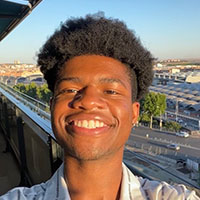 |
|
Michael Sutton
Major: Computer Science
Minor: Chinese
Hometown: Hampton, VA
Plans for the future: Fulbright Teaching Assistantship program in Taiwan; MIT Master's Degree
What have you most enjoyed about studying Chinese?
Studying Chinese at MIT has allowed me to delve into a culture vastly different from my own, an experience that I have found both fascinating and enriching. One of the most intriguing differences I've discovered is the contrasting ideologies surrounding group dynamics. In China, there is a greater emphasis on collectivism, while American culture tends to prioritize individualist ideals. This has sparked my curiosity and encouraged me to explore the roots of these contrasting perspectives.
How does the knowledge from this field, or your interest in it, combine with your other major or minor studies at MIT?
Initially, I perceived my studies in Computer Science and Chinese to be disparate fields. However, my perspective shifted when I interned at a company that leverages VR technology to facilitate language learning. The company's primary focus was on teaching Chinese to English speakers or English to Chinese speakers using immersive, virtual environment. During my internship, I realized that my background in learning Chinese provided me with valuable insights and prepared me to contribute innovative ideas to this field.
An MIT education includes study in the scientific, technical, social science, arts, and humanities fields. How do you think that wide range of knowledge and perspectives will be valuable to you — for your career success and for your enjoyment of life?
Studying a diverse range of subjects has allowed me to gain a broader perspective of the world and deepen my appreciation for different cultures and societies. Additionally, an education at MIT has equipped me with a solid foundation in various fields beyond my primary area of expertise, enabling me to contribute innovative ideas across multiple disciplines. This exposure to diverse knowledge has unlocked new possibilities for creativity and exploration, which I am excited to pursue further.
What are your plans for the future?
Upon completing my undergraduate studies, I plan to participate in a Fulbright Teaching Assistantship program in Taiwan, where I will teach English. Following this experience, I intend to return to MIT to pursue a Master's degree, building on the knowledge and skills I have acquired during my undergraduate studies.
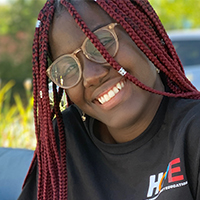 |
|
Gianna Torpey
Major: Computer Science and Engineering
Minor: French
Hometown: Tema, Ghana
Plans for the future: Software engineer
What have you most enjoyed about studying French?
Learning French has been an incredibly fulfilling journey for me, and my favorite part of it has been watching my language skills grow. It feels like just yesterday that I struggled through hours of grammar homework as a freshman in French IV. But now as a senior taking advanced classes, I can hold meaningful conversations in French, analyze French music just as I do with my favorite English songs, and follow French interviews of my favorite PSG players. Seeing myself evolve in this way has been the most rewarding aspect of my French journey here at MIT.
How does the knowledge from this field, or your interest in it, combine with your other major or minor studies at MIT?
Studying French as a minor has been a great addition to my 6-3 major. In addition to giving me a broader perspective and more cultural knowledge, my French minor has expanded my career prospects in software engineering. By combining my technical skills with my French language proficiency, I am better equipped to work in Francophone locations or collaborate with Francophone partners on international projects. Overall, my French minor has opened doors to exciting new possibilities.
An MIT education includes study in the scientific, technical, social science, arts, and humanities fields. How do you think that wide range of knowledge and perspectives will be valuable to you — for your career success and for your enjoyment of life?
I feel like the wide range of classes that we take at MIT is valuable in terms of career success and personal growth. The diverse selection of HASS subjects offer an opportunity to develop a well-rounded understanding of the world, develop creativity and critical thinking skills, and understand the issues pertaining to society today. For me personally, I feel like it has enriched my personal life by enabling me to appreciate different forms of art, understand different cultures, and engage in meaningful conversations. This education will benefit me as a computer scientist and software engineer that makes products for a global market, as I'll better understand the social implications of my work.
What are your plans for the future?
I plan on working as a software engineer.
 |
|
Cindy Wang
Major: Electical Engineering and Computer Science
Minor: Chinese
Hometown: San Jose, CA
Plans for the future: Working at a startup in California as a software engineer
What have you most enjoyed about studying Chinese?
I've enjoyed learning more about Chinese culture and gaining an understanding of the differences and similarities it shares with Western culture. I feel like I'm able to express myself much better to my Chinese-speaking family, and I'm now about to hold conversations about topics like modern events and economics in Chinese.
How does the knowledge from this field, or your interest in it, combine with your other major or minor studies at MIT?
Engineering is something that happens everywhere, and knowing the vocabulary and practicing to express myself makes me happy because I can then share my learning to a wider audience. Discovering things about the world is cool, but sharing it is what truly brings me fulfillment.
An MIT education includes study in the scientific, technical, social science, arts, and humanities fields. How do you think that wide range of knowledge and perspectives will be valuable to you — for your career success and for your enjoyment of life?
A wide range of perspectives is valuable to me because it helps me empathize with and understand a whole multitude of people who have different experiences, and still connect with them and learn from them. Being able to learn from everyone I meet will certainly increase my enjoyment of life and career success.
What are your plans for the future?
I'll be working at a startup in California as a software engineer! I'm working in security, specifically for email and Google/Microsoft accounts.
 |
|
Arun Wongprommoon
Major: Computer Science and Engineering + Linguistics
Hometown: Bangkok, Thailand
Plans for the future: Master's of Engineering
What have you most enjoyed about studying linguistics?
Linguistics is a study based on discovery and exploration of the world through the system of language which defines cultures. It is very mathematical at times, making it attractive as it is mind-blowing to think that something as organic as different languages humans came up with (before they came up with mathematics itself) can universally be explained by mathematical rules and logic. One of my best experiences in linguistics is making potentially new discoveries about the phonology explaining ongoing changes in my own mother tongue for 24.918, incorporating help from a permutation and graph theory software.
How does the knowledge from this field, or your interest in it, combine with your other major or minor studies at MIT?
Linguistics and computer science are very intertwined, especially in natural language processing and spoken language systems. As we all have seen from ChatGPT, the boundaries of human technology are being pushed with the help of this intersection of disciplines, ultimately transforming the world into a better place.
An MIT education includes study in the scientific, technical, social science, arts, and humanities fields. How do you think that wide range of knowledge and perspectives will be valuable to you — for your career success and for your enjoyment of life?
SHASS teaches me that there is no absolute one correct answer or a formula in many aspects of life. Sometimes, I take things as a matter of fact. However, I come to learn there are hypotheses, elicitations, ever-changing discoveries, perspectives, actors and networks, creativity, synchopation, people, provenances, and so much more. All the subjects I have taken in SHASS invite me to think critically, take a step back and above from things, and question and challenge the things taken for granted. Only then can I enjoy life and my career more fully.
What are your plans for the future?
I will be doing an M.Eng, potentially listening in on more linguistics classes, and go on to enter the industry doing things I am passionate about, hopefully something that makes use of all my interests.
 |
|
Angela Zhang
Major: Computer Science and Engineering
Minor: Anthropology
Hometown: Austin, TX
Plans for the future: Working at a startup in San Francisco
What have you most enjoyed about studying anthropology?
Something I love is that despite the wide range of topics in Anthropology, in the end it's all about the people. Over the past four years, I have explored case studies from places all over, and each of them has helped me come to a better understanding of the world and the people that live in it. One of my favorite classes was Food, Culture, and Politics (21A.155) because of the way it connected food to concepts of identity, authenticity, memory, and a variety of other topics that are central to the human experience.
How does the knowledge from this field, or your interest in it, combine with your other major or minor studies at MIT?
EECS is just as much about humans as any other subject area, and an important part of the engineering process is evaluating how design decisions will affect real people. For example, Technology and Culture (21A.500) took deep dives into a number of ethical issues in computing, pushing me to reevaluate the ways in which I both think and learn about technology.
An MIT education includes study in the scientific, technical, social science, arts, and humanities fields. How do you think that wide range of knowledge and perspectives will be valuable to you — for your career success and for your enjoyment of life?
All the readings and in-class discussions about global cultures, customs, and societies have opened up my worldview and taught me more than my freshman self could have imagined. I often think a lot about how people (myself included) find meaning, and being a part of the Anthropology program has helped me make sense of the world just a little bit more.
What are your plans for the future?
I will be working at a startup in San Francisco!
 |
|
Diane Zhang
Major: Computer Science and Molecular Biology
Minor: Spanish
Plans for the future: MD-PhD program with a research focus in computational biology
What have you most enjoyed about studying Spanish?
Learning Spanish has opened new opportunities for me at MIT. Studying Spanish has brought me to take Advanced Spanish Communications in Madrid my freshman IAP, research at the University of Chile through MISTI, and volunteer with Latino youth at Sociedad Latina in Boston. Importantly, studying Spanish has had extensive intangible value. I’ve developed relationships with teaching staff, other students, and communities whom I never would have met without our common interaction through Spanish. One unforgettable experience only made possible through knowing Spanish was when I embarked on a 5 day trek to Machu Picchu with 3 other MIT students self-guided, where we passed through mountains and cloud forests at the edge of the Amazon, using our Spanish at huts and small villages to find accommodation and meals every day.
How does the knowledge from this field, or your interest in it, combine with your other major or minor studies at MIT?
I am a 6-7 (Computer Science and Molecular Biology) major. As a prospective physician scientist, I hope to work with Spanish-speaking populations domestically and internationally and to translate biomedical advancements to under-resourced settings. One of my dreams is to help build a strong global health network, a task that involves not only biological and medical knowledge but also deep cultural and social understanding.
An MIT education includes study in the scientific, technical, social science, arts, and humanities fields. How do you think that wide range of knowledge and perspectives will be valuable to you — for your career success and for your enjoyment of life?
I believe that having a wide-ranging education prepares us as MIT students to be successful humans and not just successful scientists. We are taught to appreciate science and modern innovation from a technical standpoint as well as how to be aware and critical of their societal implications.
What are your plans for the future?
After I graduate, I will enroll in an MD-PhD program with a research focus in computational biology. I hope to one day become a physician scientist!
 |
|
Tianyuan "Margaret" Zheng
Major: Computer Science, Economics, and Data Science
Minor: Music
Hometown: Qingdao, China (and later Mobile, AL)
Future plans: Master of Engineering at MIT
What have you most enjoyed about studying music?
While I have always enjoyed playing music since I was a young child, the breadth of music classes I have taken at MIT has truly introduced me to many universes of thoughts and expressions. I learned about different ways to write lyrics and melody through not only 21M.301 (Harmony and Counterpoint), but also from concert choir and music culture courses.
How does the knowledge from this field, or your interest in it, combine with your other major or minor studies at MIT?
I have learned that music can blend seamlessly with other fields such as mathematics. In 21M.080, I discovered that when combined with abstract algebra (group and ring theory), music could be used to create algorithms that accurately predict melodies. Despite the intricate connections between music and other fields, I also derive immense joy from improvising music in a casual setting. This hobby has not only provided me with mental benefits but has also taught me valuable lessons.
An MIT education includes study in the scientific, technical, social science, arts, and humanities fields. How do you think that wide range of knowledge and perspectives will be valuable to you — for your career success and for your enjoyment of life?
I'm truly grateful for every opportunity I have been presented to and/or sought at MIT. In addition to the abundance of academic opportunities at MIT, I was able to explore myself and my identities through many projects.
What are your plans for the future?
I will be continuing at MIT as a Master of Engineering student in 6-14.
 |
|
Miriam Zuo
Major: Computer Science, Economics, and Data Science + Mathematics
Minor: Business Analytics
Hometown: Houston, TX
Plans for the future: Working at Point72 in New York City
What have you most enjoyed about studying economics?
My favorite part about studying economics is seeing how theoretical models apply to real world phenomena. For example, in my industrial organization class this semester, I’ve enjoyed analyzing different competition models and then discussing case studies that embody the models.
How does the knowledge from this field, or your interest in it, combine with your other major or minor studies at MIT?
My studies in economics have provided a valuable framework for trying to understand current events. Combined with quantitative computer science courses and more proof-heavy math ones, my interdisciplinary education has continually pushed me to dig deeper and think more critically about how seemingly disparate ideas interact.
An MIT education includes study in the scientific, technical, social science, arts, and humanities fields. How do you think that wide range of knowledge and perspectives will be valuable to you — for your career success and for your enjoyment of life?
At MIT, I’ve been exposed to a broad range of subjects that have challenged me to think in different ways: from writing a paper to proving an algorithm’s runtime to putting together a presentation, MIT has helped me develop a variety of skills that I’ll be able to carry into the start of my career. It’s also provided me with a deeper appreciation for pursuing knowledge across different fields, and I’m eager to keep learning after graduating, whether at work or in my personal time.
What are your plans for the future?
After graduation, I’m starting full time at Point72. Looking forward to being in NYC!
Suggested Links
Meet the MIT Bilinguals
Profiles of some of the many MIT students who focus on both humanistic and sci/tech fields at MIT, often earning dual degrees
On Technical + Humanistic competence
Interview with MIT Professor David Mindell: Historian, Engineer, Professor, Co-founder/CEO of Humatics Corporation: "Dual competence is a good model for undergraduates at MIT: master two fundamental ways of thinking about the world, one technical and one humanistic. Sometimes these two modes will be at odds with each other, which raises critical questions. Other times they will be synergistic and energizing."
Prepared by MIT SHASS Communications
Office of the Dean
Editorial and Design Director: Michael Brindley
Senior Communications Associate: Alison Lanier
Published 31 May 2023
